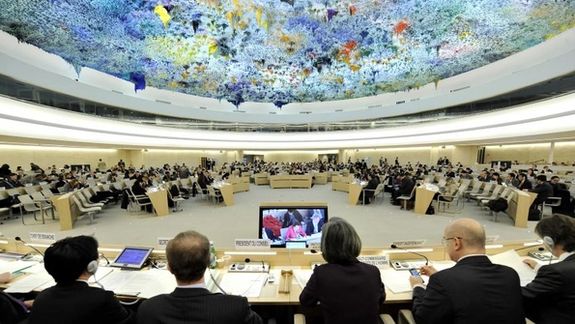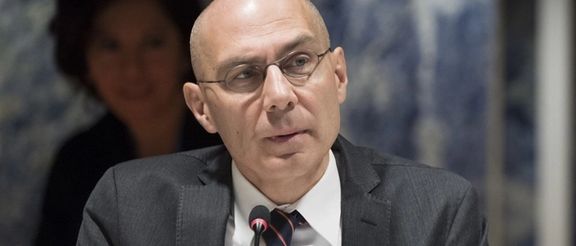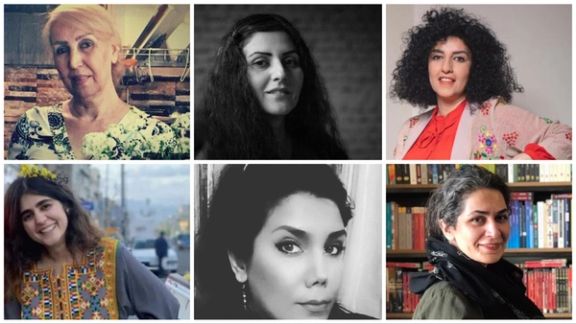UN Appalled By Iran’s Execution Spree

The United Nations says Iran has executed 209 people so far this year, calling the record "abominable".

The United Nations says Iran has executed 209 people so far this year, calling the record "abominable".
Ravina Shamdasani, a spokesperson for the UN human rights office, made the remarks during a press briefing in Geneva on Tuesday.
She said that UN Human Rights chief Volker Türk had expressed dismay at the frighteningly high number of executions this year.
"On average so far this year, over 10 people are put to death each week in Iran, making it one of the world's highest executors,” she said.
“This is an abominable record, particularly when you consider the growing consensus for universal abolition of the death penalty.”

Two Iranians jailed for insulting religious entities were hanged on Monday, strengthening speculations that the Islamic Republic has embarked on a killing spree to intimidate people against further protests.Moreover, Iran executed Iranian-Swedish political activist and former leader of the Arab Struggle Movement for the Liberation of Ahwaz (ASMLA) Habib Chaab (Asyud) on Saturday for “corruption on earth”.
A group of six female activists, including prominent civil activist Narges Mohammadi, Sepideh Gholian, and Golrokh Iraee, imprisoned in Tehran’s notorious Evin prison issued a statement Monday, condemning the execution spree by the regime, claiming it will not deter those fighting the region.
"The continuation and acceleration of the execution of death sentences in recent days is the government's attempt to suppress people and create fear and terror,” they said.

Since September, when the regime’s hijab enforcers beat to death 22-year-old Mahsa Amini, Iran has been a scene of regular rallies, the boldest since the establishment of the Islamic autocracy.
Well over 500 people, including at least 60 minors, were killed during the clashes with about 20,000 arrested. Several people were executed following trumped-up charges by the country’s judiciary.
Noting that a large number of the executions pertained to drug-related offences with a disproportionately high number representing minorities, Türk said: “Imposing the death penalty for drug offences is incompatible with international human rights norms and standards.”
According to Haalvsh website, a local news outlet that monitors rights violations in Iran's Baluchestan region, at least 26 members of the Baluch minority have been hanged in the past nine days, reflecting the renewed vigor with which the regime is targeting the notoriously anti-regime minority.
Iran has always been among the top countries in terms of the number of capital punishment. Recently, however, the government has intensified its reign of terror with expedited procedures for executions, which are growing exponentially.
Right groups have described the promptness of the regime’s executions of Baluch prisoners in recent weeks as “an official policy to intimidate protesters in Sistan and Baluchistan province.”As Sunni Muslims, Baluch citizens are both an ethnic and religious minority. Estimates of the Iranian Baluch population range from 1.5 to 2 million people.
The Baluch community – along with the Kurds -- has always been among the most persecuted minorities of Iran, and has the largest number of people executed in the country. Most of the Baluchs are executed over drug-related charges, but activists say their cases do not receive due process through a fair trial and that the regime uses drug charges as a pretext to avenge 30 consecutive weeks of widespread protests after their Friday prayers.
In its Tuesday press release, the office of the high commissioner for human rights confirmed that the exact number of executions is unknown due to lack of government transparency, and the figure is likely to be higher.
“At this rate, Iran is worryingly on the same track as last year when around 580 people were reportedly executed,” Türk added. The High Commissioner also urged the Iranian authorities to establish a moratorium on executions with a view to abolishing the death penalty though as numbers soar, this looks unlikely.